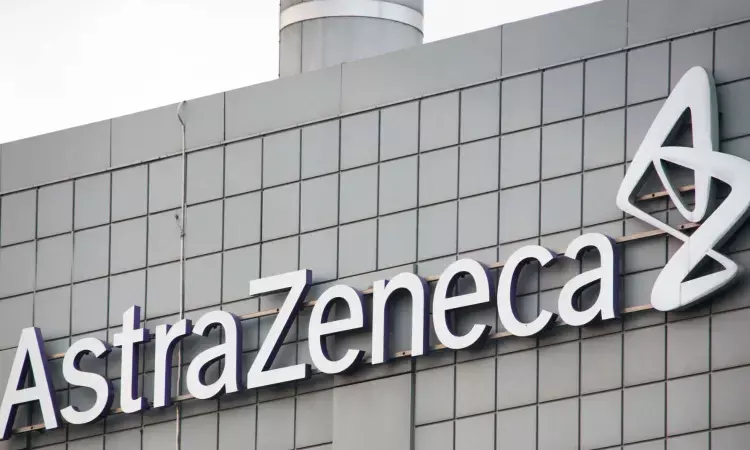- Home
- Medical news & Guidelines
- Anesthesiology
- Cardiology and CTVS
- Critical Care
- Dentistry
- Dermatology
- Diabetes and Endocrinology
- ENT
- Gastroenterology
- Medicine
- Nephrology
- Neurology
- Obstretics-Gynaecology
- Oncology
- Ophthalmology
- Orthopaedics
- Pediatrics-Neonatology
- Psychiatry
- Pulmonology
- Radiology
- Surgery
- Urology
- Laboratory Medicine
- Diet
- Nursing
- Paramedical
- Physiotherapy
- Health news
- Fact Check
- Bone Health Fact Check
- Brain Health Fact Check
- Cancer Related Fact Check
- Child Care Fact Check
- Dental and oral health fact check
- Diabetes and metabolic health fact check
- Diet and Nutrition Fact Check
- Eye and ENT Care Fact Check
- Fitness fact check
- Gut health fact check
- Heart health fact check
- Kidney health fact check
- Medical education fact check
- Men's health fact check
- Respiratory fact check
- Skin and hair care fact check
- Vaccine and Immunization fact check
- Women's health fact check
- AYUSH
- State News
- Andaman and Nicobar Islands
- Andhra Pradesh
- Arunachal Pradesh
- Assam
- Bihar
- Chandigarh
- Chattisgarh
- Dadra and Nagar Haveli
- Daman and Diu
- Delhi
- Goa
- Gujarat
- Haryana
- Himachal Pradesh
- Jammu & Kashmir
- Jharkhand
- Karnataka
- Kerala
- Ladakh
- Lakshadweep
- Madhya Pradesh
- Maharashtra
- Manipur
- Meghalaya
- Mizoram
- Nagaland
- Odisha
- Puducherry
- Punjab
- Rajasthan
- Sikkim
- Tamil Nadu
- Telangana
- Tripura
- Uttar Pradesh
- Uttrakhand
- West Bengal
- Medical Education
- Industry
USFDA grants priority review to Capivasertib in combination with Faslodex for advanced HR-positive breast cancer: AstraZeneca

Breast cancer is the most common cancer worldwide, with an estimated 2.3 million patients diagnosed each year.
Cambridge: AstraZeneca’s New Drug Application (NDA) for capivasertib in combination with Faslodex (fulvestrant) has been accepted and granted Priority Review in the US for the treatment of adult patients with hormone receptor (HR)-positive, human epidermal growth factor receptor 2 (HER2)-negative locally advanced or metastatic breast cancer following recurrence or progression on or after an endocrine-based regimen.
The Food and Drug Administration (FDA) grants Priority Review to applications for medicines that, if approved, would offer significant improvements over available options by demonstrating safety or efficacy improvements, preventing serious conditions, or enhancing patient compliance. The Prescription Drug User Fee Act date, the FDA action date for their regulatory decision, is during the fourth quarter of 2023.
The NDA is also being reviewed under Project Orbis, an initiative of the FDA which provides a framework for concurrent submission and review of oncology medicines among participating international partners to expedite approval for patients around the world.
Breast cancer is the most common cancer worldwide, with an estimated 2.3 million patients diagnosed each year. In the US, more than 290,000 patients are expected to be diagnosed in 2023, with more than 43,000 deaths. More than 65% of breast cancer tumours are considered HR-positive and HER2-low or negative. Endocrine therapies are widely used for the treatment of HR-positive breast cancer, but many patients with advanced disease develop resistance to 1st-line CDK4/6 inhibitors and endocrine therapies, underscoring the need for additional options.
Susan Galbraith, Executive Vice President, Oncology R&D, AstraZeneca, said, “This Priority Review decision underscores the potential of capivasertib to extend the effectiveness of endocrine-based treatment approaches for patients with HR-positive breast cancer who experience tumour progression on, or resistance to these widely used therapies. We look forward to working with the FDA to bring this potential first-in-class AKT inhibitor to patients as quickly as possible.”
The NDA is based on data from the CAPItello-291 Phase III trial presented at the 2022 San Antonio Breast Cancer Symposium and recently published online in The New England Journal of Medicine.
In the trial, capivasertib in combination with Faslodex demonstrated a 40% reduction in the risk of disease progression or death versus placebo plus Faslodex in the overall trial population (based on hazard ratio [HR] of 0.60, 95% confidence interval [CI] 0.51-0.71; p=<0.001; median progression-free survival (PFS) 7.2 versus 3.6 months). Although the overall survival (OS) data were immature at the time of the analysis, early data are encouraging. The trial continues to assess OS as a key secondary endpoint.
The safety profile of capivasertib plus Faslodex was similar to that observed in previous trials evaluating this combination.
In January 2023, capivasertib was granted Fast Track Designation by the FDA in this setting for this patient population.
Ruchika Sharma joined Medical Dialogue as an Correspondent for the Business Section in 2019. She covers all the updates in the Pharmaceutical field, Policy, Insurance, Business Healthcare, Medical News, Health News, Pharma News, Healthcare and Investment. She has completed her B.Com from Delhi University and then pursued postgraduation in M.Com. She can be contacted at editorial@medicaldialogues.in Contact no. 011-43720751


